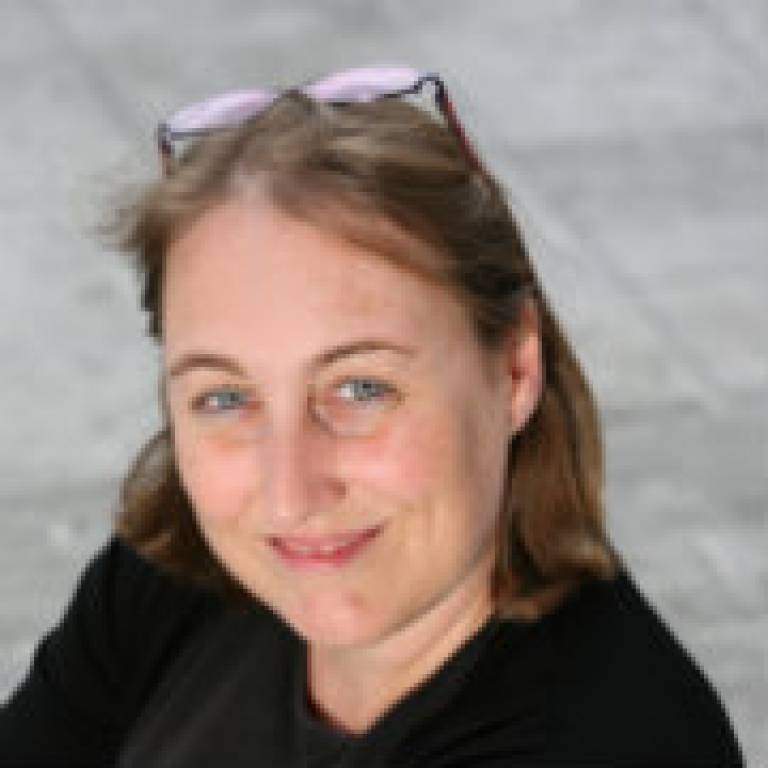Spotlight on Dr Ruth Siddall
7 March 2012
This week the spotlight is on Dr Ruth Siddall, Senior Lecturer in Earth Sciences, Department of Earth Sciences, and Dean of Students (Welfare).

What is your role and what does it involve?
My life at UCL is split between two mutually exclusive jobs. For half of my time, I'm a member of academic staff in the Department of Earth Sciences and for the other half of my time, I'm UCL's Dean of Students (Welfare).
As a senior lecturer in Earth Sciences, I teach
undergraduates in geology and I'm also the programme director for our MSc in
Geosciences.
My research is in the field generically known as 'geo-archaeology',
which is essentially applying geological techniques to answer questions posed
by archaeological discoveries.
Therefore, I work on finds from excavations or museum collections; primarily in the analysis of pigments from painted surfaces but also the analysis of building materials and ceramics, which can provide information on the technologies and trade routes available to societies and much more.
The role of Dean of Students (Welfare) could not be
more different. The main objective of this job is to ensure reasonable welfare
support to all students at UCL so that all can have their optimum chance of
achieving their optimum degree result without the other things that life throws
at you getting in the way.
UCL offers a range of welfare support, from the personal tutor system in academic departments to services provided by the Registry and UCL Union among others. My job is to make sure that students are appropriately engaged with all the services that can help them.
Our office also provides a hardship fund for
students in financial difficulty and an advocacy service for students who feel
that they are not communicating well with other departments within UCL.
A typical day would start with a walk-in advice clinic for students so that they have an opportunity to present their problems. In the afternoon, I could be in a variety of college committees or meetings with UCL Union.
The job can be unpredictable. Students can find themselves facing a crisis or I have to respond to an article in the press or give an interview. I have to be prepared to drop whatever I am doing and deal with emergencies if they occur. My life is certainly not boring.
How long have you been at UCL and what was your previous role?
I first came to UCL in September 1989 to start a PhD
in the Department of Earth Sciences. I was appointed as a lecturer in 1995.
Before that I had been at the University of Birmingham as an undergraduate. After my PhD, I worked for the American School of Classical Studies in Athens and their excavations at Corinth; this experience sparked my interest in the analysis of archaeological materials.
What working achievement or initiative are you most proud of?
It always feels good when a student comes to see me with a problem that to them seems insurmountable and I'm able to solve it for them. It doesn't always work out so easily, but when it does it's very rewarding.
In terms of my research, I have been involved for
the past five years on the restoration programme for the Sanctuary Pavement at
Westminster Abbey, a unique 13th Century floor directly in front of
the high altar. It has spent hundreds of years under a carpet, but it is now on
permanent show.
Millions of people saw it on TV last Easter, albeit under the feet of the royal couple. It looked beautiful and I am very proud to have been a part of that project.
What is your life like outside UCL?
I love music of (almost) all kinds and try to take every opportunity to see live music. I read a lot and also love walking, both exploring London and in the great outdoors. I've got family in north Wales and New Zealand and visit both whenever I can.
 Close
Close

